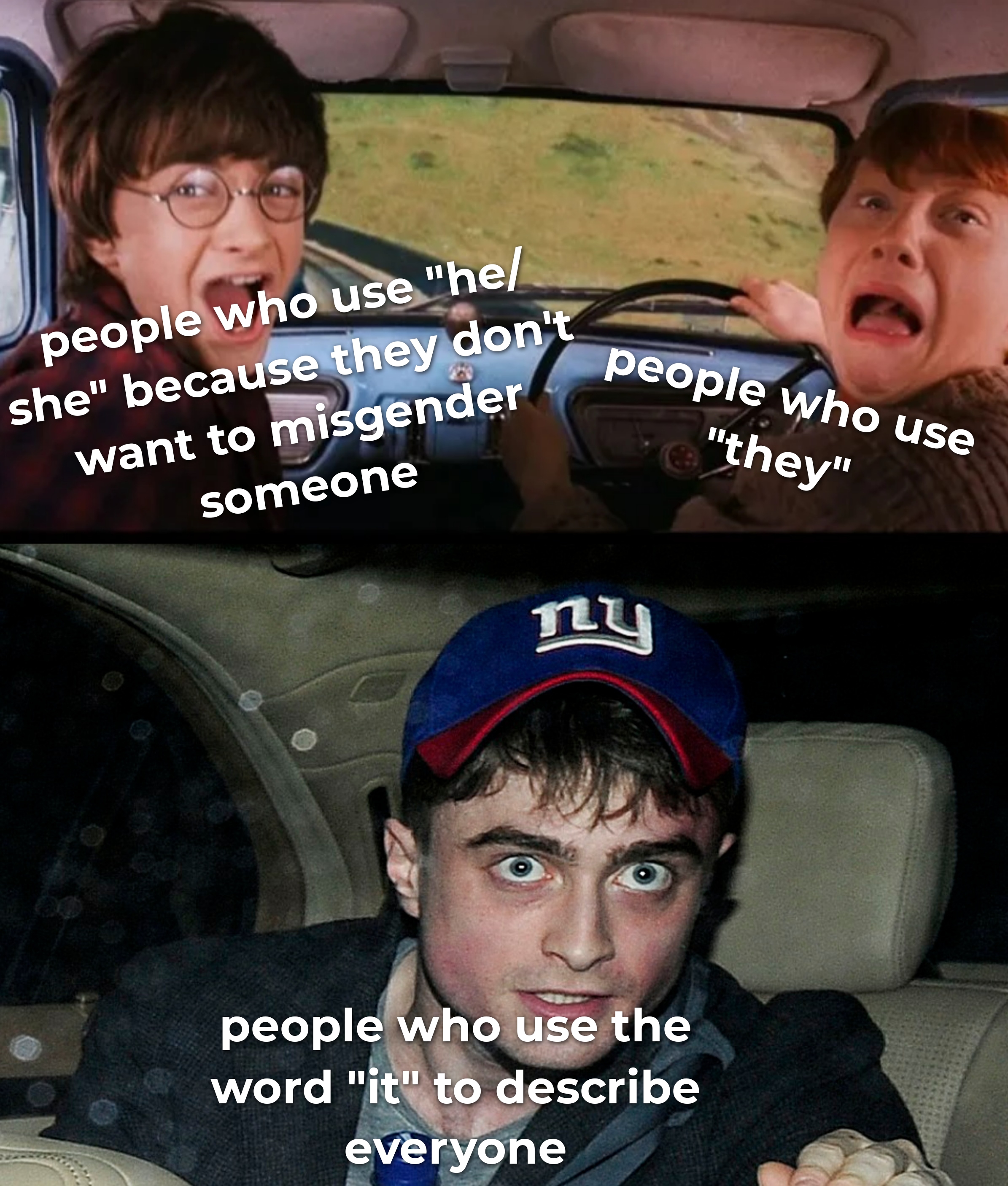this post was submitted on 28 Sep 2023
653 points (93.0% liked)
memes
9806 readers
4 users here now
Community rules
1. Be civil
No trolling, bigotry or other insulting / annoying behaviour
2. No politics
This is non-politics community. For political memes please go to [email protected]
3. No recent reposts
Check for reposts when posting a meme, you can only repost after 1 month
4. No bots
No bots without the express approval of the mods or the admins
5. No Spam/Ads
No advertisements or spam. This is an instance rule and the only way to live.
Sister communities
- [email protected] : Star Trek memes, chat and shitposts
- [email protected] : Lemmy Shitposts, anything and everything goes.
- [email protected] : Linux themed memes
- [email protected] : for those who love comic stories.
founded 1 year ago
MODERATORS
you are viewing a single comment's thread
view the rest of the comments
view the rest of the comments

I would say that, given that it’s never ok, it is part of English grammartical rules. In German they actually use two different words for when a human eats or when an animal eats, it’s not unprecedented and there’s no need to lend any credibility to the usage of the word “it”.
There is a single precedent I can think of, which is that with some regularity I see infants/newborns referred to as "it".
A mindset from the before (antibiotics) times. Babies used to die quite frequently. So much that in some cultures babies weren't named until later in their life, not during pregnancy as it's custom today. So they were kind of an out there thing, that wasn't baptized and named yet, they were an it. They were “the baby”. No different than a dog or a turtle, they might die without a name, given an unmarked burial. And off to the next pregnancy. Still a tragedy, and people did mourn and suffered the loss. But not to the same degree of modern, western medicalized, pregnancies were almost every single baby born is expected to at least survive to infancy.
"Can you tell if that's a man or a woman over there?" "It's a man."
My point was merely to show the difference between what is grammatically ok vs what is societally ok.
In time, I imagine English grammar will continue to change with the language and it will take on a definition that indicates something nonsentient.